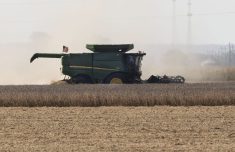MOSCOW/SYDNEY Jan 17 (Reuters) – Russia is temporarily banning the import of beef by-products from Australia, citing the detection in shipments of a growth stimulant it prohibits and throwing into doubt exports that brought in around A$10 million ($8.81 million) last year for Australia.
The ban will be imposed from Jan. 27 and was prompted by the detection of the growth stimulant in several shipments, Russia’s Veterinary and Phytosanitary Surveillance Service said in a statement on Thursday. It was not immediately clear when the ban will be reviewed.
“The suspension has been put in place following the detection of residues of the hormonal growth promotant Trenbolone in a small number of export consignments,” a spokesman for the Australian Department of Agriculture told Reuters on Friday.
Read Also

U.S. livestock: Feeder cattle hit contract highs on tight supply
Chicago | Reuters – All Chicago Mercantile Exchange feeder cattle futures and most live cattle futures hit contract highs on…
Most countries permit the use of Trenbolone but Russia and the Commonwealth of Independent States prohibit their presence in beef imports, analysts said.
Australia’s agriculture department has reiterated Russia’s requirements to meat exporters and moved to strengthen its certification requirements for products exported to Russia, the spokesman said.
Russia imported 12,435 tonnes of beef offal from Australia in the first 11 months of 2013, according to industry data, worth A$10.5 million.
Industry body Meat and Livestock Australia said the Russian market was worth about 10 percent of annual Australian beef offal exports.
Trenbolone is approved for use in Canada and the United States, according to the Canadian Cattlemen’s Association, but Canada has shipped virtually no beef to Russia since Russia last year banned beef produced with the growth stimulant ractopamine. The ban also affected U.S. beef.
“Just throw it on the pile of issues, things that Russia is doing and not abiding by science, not abiding by (trade) rules,” said John Masswohl, director of government and international relations for the Canadian Cattlemen’s Association.
Because of the Russian ban on U.S. beef, the use of Trenbolone is a non-issue but could indirectly affect U.S. beef sales efforts to other counties, said Livestock Marketing Information director Jim Robb.
“Australia will likely need to redirect their exports in the short term to other countries where the U.S. currently competes,” he said.
Australia is the world’s third-largest beef exporter after the United States and Brazil. More than 30 Australian firms are currently allowed to supply beef and by-products to Russia.
Trenbolone has not been allowed for the purpose of enhancing growth in animals in Brazil since 2011, a spokeswoman at Brazil’s agriculture ministry said.
Russia imported 1.1 million tonnes of red meat worth $4.5 billion in January-November 2013, according to official customs data. ($1 = 1.1355 Australian dollars)
















